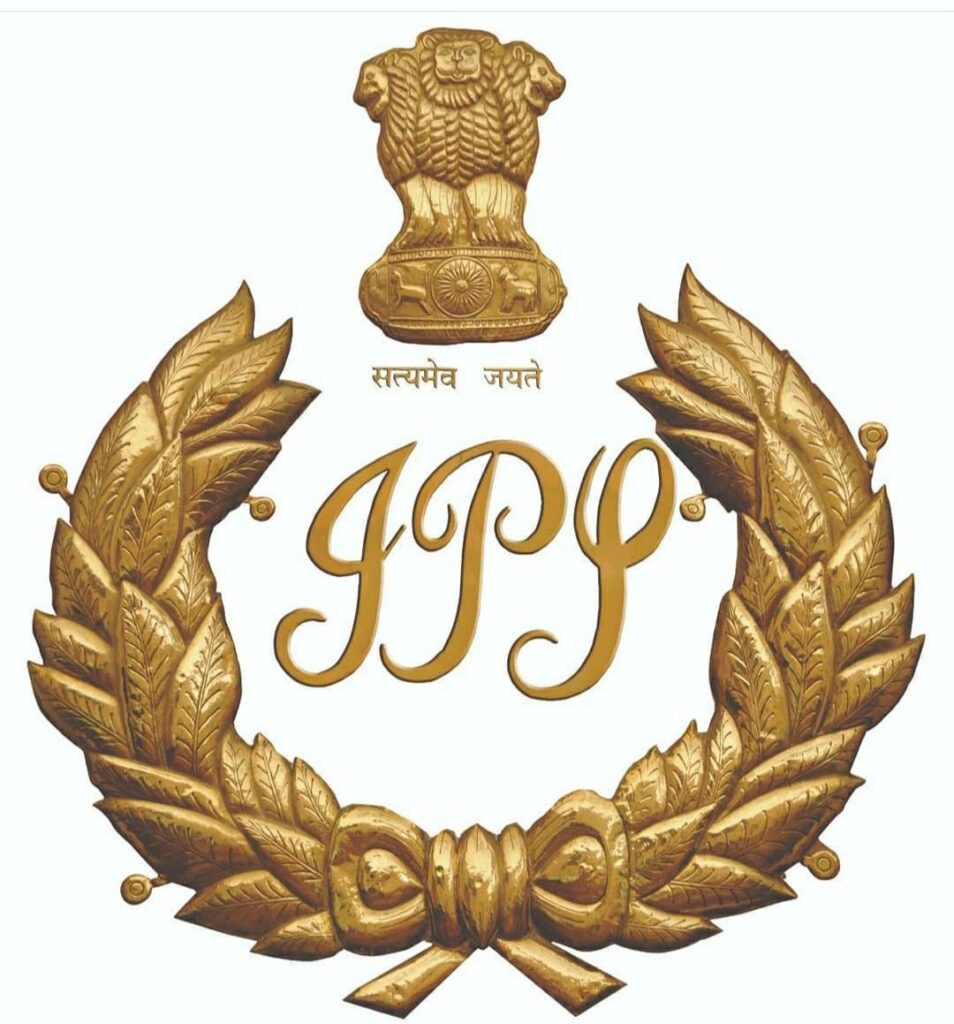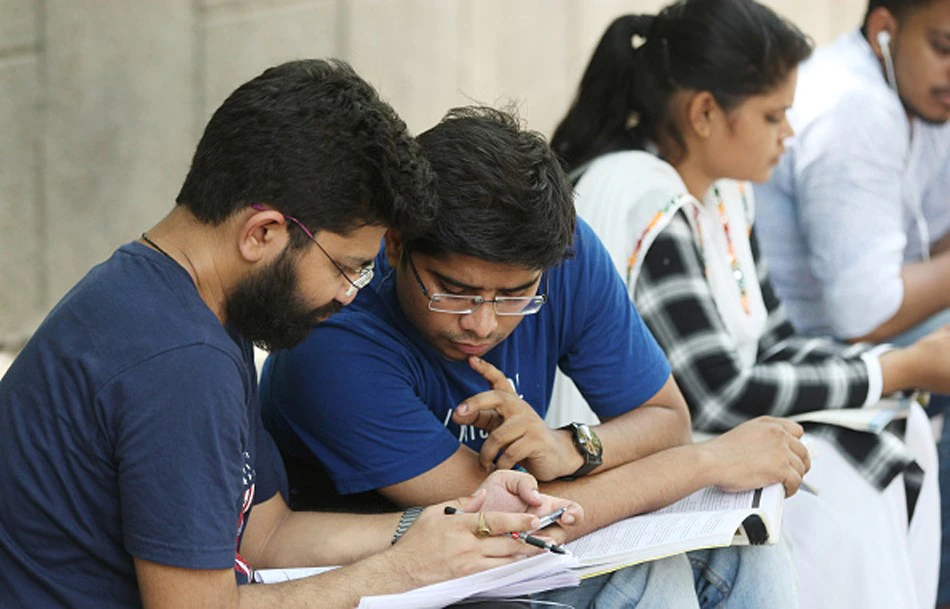The IPS salary in 2024 varies by rank, starting from INR 56,100 per month. The IPS exam is crucial for becoming an IPS officer.
The Indian Police Service (IPS) plays a vital role in maintaining law and order in India. An IPS officer’s responsibilities include crime prevention, investigation, and ensuring public safety. The journey to becoming an IPS officer starts with the UPSC Civil Services Examination, one of the toughest exams in the country.
IPS officers undergo rigorous training at the Sardar Vallabhbhai Patel National Police Academy. They hold significant roles such as Superintendent of Police, Deputy Commissioner, and more. Understanding the full form, roles, and responsibilities helps aspirants prepare better for this prestigious career.

Ips Salary Structure
The Indian Police Service (IPS) is one of the most prestigious services in India. Aspiring candidates often wonder about the salary structure. This section provides a detailed overview of the IPS salary structure, including the basic pay scale and various allowances and benefits.
Basic Pay Scale
The basic pay scale for an IPS officer varies based on their rank and years of service. Below is a table representing the basic pay scale for different ranks:
| Rank | Pay Scale (INR) |
|---|---|
| Deputy Superintendent of Police (DSP) | 56,100 – 1,77,500 |
| Additional Superintendent of Police (ASP) | 67,700 – 2,08,700 |
| Superintendent of Police (SP) | 78,800 – 2,09,200 |
| Deputy Inspector General of Police (DIG) | 1,31,100 – 2,16,600 |
| Inspector General of Police (IG) | 1,44,200 – 2,18,200 |
| Director General of Police (DGP) | 2,05,400 – 2,24,400 |
Allowances And Benefits
IPS officers enjoy several allowances and benefits in addition to the basic pay. These include:
- Dearness Allowance (DA): This is a cost of living adjustment allowance.
- House Rent Allowance (HRA): This allowance depends on the city of posting.
- Medical Allowance: Covers health expenses for officers and their families.
- Travel Allowance (TA): Compensates for official travel expenses.
- Special Duty Allowance: Given for postings in special or difficult areas.
These allowances make the total compensation package of an IPS officer quite attractive. The benefits ensure financial security and support for the officers and their families.
Understanding the salary structure is crucial for those aiming to become an IPS officer. It provides a clear picture of financial rewards and benefits.
Climbing The Ranks
Becoming an Indian Police Service (IPS) officer is a prestigious journey. It involves dedication, hard work, and continuous learning. Once you clear the UPSC exam and join the IPS, your career progression is just beginning. Let’s explore the exciting path of climbing the ranks in the IPS.
Promotion And Career Progression
Promotion in the IPS happens based on performance and seniority. Each rank offers new challenges and responsibilities. It starts from the probationary period and moves up to higher ranks with years of service.
Below is a brief overview of the typical IPS career progression:
- Assistant Superintendent of Police (ASP) – The starting rank after training.
- Deputy Superintendent of Police (DSP) – Promoted after a few years as ASP.
- Superintendent of Police (SP) – Assigned to head a district.
- Senior Superintendent of Police (SSP) – Promotion after successful service as SP.
- Deputy Inspector General of Police (DIG) – Oversees multiple districts.
- Inspector General of Police (IG) – Higher administrative responsibilities.
- Additional Director General of Police (ADG) – Manages large zones.
- Director General of Police (DGP) – The highest rank in state police.
Rank-wise Salary Breakdown
IPS officers receive competitive salaries and benefits. Below is a rank-wise salary breakdown for IPS officers in 2024:
| Rank | Basic Pay (per month) | Grade Pay | Total Salary (approx.) |
|---|---|---|---|
| Assistant Superintendent of Police (ASP) | ₹56,100 | ₹5,400 | ₹1,00,000 |
| Deputy Superintendent of Police (DSP) | ₹67,700 | ₹6,600 | ₹1,20,000 |
| Superintendent of Police (SP) | ₹78,800 | ₹7,600 | ₹1,40,000 |
| Senior Superintendent of Police (SSP) | ₹1,18,500 | ₹8,700 | ₹1,90,000 |
| Deputy Inspector General of Police (DIG) | ₹1,31,100 | ₹8,900 | ₹2,10,000 |
| Inspector General of Police (IG) | ₹1,44,200 | ₹10,000 | ₹2,30,000 |
| Additional Director General of Police (ADG) | ₹1,82,200 | ₹12,000 | ₹2,70,000 |
| Director General of Police (DGP) | ₹2,05,400 | ₹13,000 | ₹3,00,000 |
These figures are approximate and may include allowances. They provide an idea of the financial rewards at each rank.
Qualifications Required
To become an IPS officer, you must meet specific qualifications. These qualifications ensure that candidates are well-prepared for the responsibilities of the role. This section will cover the educational criteria, age requirements, and physical standards needed to qualify for the IPS exam.
Educational Criteria
Applicants must hold a bachelor’s degree from a recognized university. The degree can be in any field of study. Final-year students can also apply, but they must present their degree certificate during the interview stage. The degree ensures candidates have the necessary academic background for the role.
Age And Physical Standards
The minimum age to apply is 21 years. The maximum age limit is 32 years for general category candidates. Age relaxations apply to certain categories:
- SC/ST: Up to 5 years
- OBC: Up to 3 years
- Ex-Servicemen: Up to 5 years
Candidates must meet specific physical standards. These include:
| Criteria | Men | Women |
|---|---|---|
| Height | 165 cm (General) | 150 cm (General) |
| Chest | 84 cm (Expansion of 5 cm) | 79 cm (Expansion of 5 cm) |
| Eyesight | 6/6 or 6/9 | 6/6 or 6/9 |
Meeting these physical standards ensures candidates can handle the demanding nature of the job.


The Ips Examination
The Indian Police Service (IPS) exam is a prestigious test. It is part of the Civil Services Examination. The Union Public Service Commission (UPSC) conducts this exam. Many candidates dream of becoming an IPS officer. They must pass this tough exam. Let’s explore the key aspects of the IPS Examination.
Upsc Civil Services Exam
The UPSC Civil Services Exam is the first step. It consists of three stages:
- Preliminary Examination: This is a screening test. It has two objective-type papers.
- Main Examination: This is a written exam. It has nine papers, including essay writing.
- Personality Test: This is an interview. It assesses the candidate’s suitability.
Candidates must clear all three stages. Only then can they become IPS officers.
Ips-specific Paper And Interview
The Main Examination has specific papers for IPS aspirants. These include:
- General Studies Papers: These papers test knowledge of various subjects.
- Optional Subject Papers: Candidates choose one subject. They must excel in it.
- Essay Paper: This tests writing and thinking skills.
The interview is the final stage. It is crucial for IPS selection. The interview panel assesses:
- Communication skills
- Leadership qualities
- Decision-making ability
Candidates need to prepare well. They must be confident and knowledgeable.
Training For Excellence
Becoming an Indian Police Service (IPS) officer requires rigorous training. This training ensures that officers are ready for the challenges they will face. The training is divided into two main phases: academy training and real-world training.
Academy Training Overview
The academy training takes place at the Sardar Vallabhbhai Patel National Police Academy (SVPNPA) in Hyderabad. This phase is crucial for building the foundation of an IPS officer’s career. The training includes both theoretical and practical lessons.
Key areas covered in academy training include:
- Law and Order: Understanding the legal framework of India.
- Criminology: Studying criminal behavior and its causes.
- Forensic Science: Learning about crime scene investigation and evidence collection.
- Physical Training: Developing physical fitness and stamina.
- Leadership Skills: Training to lead teams effectively.
Real-world Training Modules
After the academy, officers undergo real-world training. This phase is known as district training. It is conducted in various districts across India. During this period, officers gain practical experience by working in real police stations.
Real-world training modules include:
- Field Operations: Handling day-to-day police activities.
- Community Policing: Engaging with the community to build trust.
- Crisis Management: Managing emergencies and critical situations.
- Investigation Techniques: Conducting investigations and solving crimes.
- Traffic Management: Regulating and controlling traffic to ensure safety.
Both training phases aim to create competent and resilient IPS officers. These officers are well-prepared to serve and protect the nation.
Life After Training
Becoming an IPS officer is a journey of dedication and hard work. After completing the rigorous training, the real adventure begins. Life after training for an IPS officer is challenging yet rewarding. It involves assuming critical roles and responsibilities to maintain law and order.
First Posting
After training, new IPS officers receive their first posting. This is often in a district where they will be designated as an Assistant Superintendent of Police (ASP). The first posting is crucial as it sets the stage for their career. They start by learning the ropes and understanding the local issues.
An IPS officer’s initial tasks involve supervising police stations, handling public grievances, and ensuring the implementation of law and order. This phase is essential for developing leadership and administrative skills.
Challenges And Responsibilities
The life of an IPS officer is filled with various challenges and responsibilities. They need to manage crime, ensure public safety, and maintain peace in their jurisdiction. The role requires quick decision-making and a strong ethical foundation.
Some common challenges include:
- Handling political pressure
- Managing public expectations
- Dealing with media scrutiny
- Ensuring the safety of women and children
Despite these challenges, an IPS officer’s role is highly respected. They have the authority to bring about positive changes in society. Their responsibilities include:
- Investigating crimes and ensuring justice
- Supervising police personnel
- Conducting community outreach programs
- Coordinating with other law enforcement agencies
Being an IPS officer requires dedication, resilience, and a commitment to public service.
Financial Growth And Stability
Becoming an IPS officer guarantees not only respect and recognition but also financial growth and stability. With a structured salary system, periodic increments, and substantial retirement benefits, the financial aspects of this career are highly rewarding. Let’s explore the different facets of financial growth and stability for an IPS officer.
Salary Increments
IPS officers enjoy periodic salary increments that significantly enhance their financial standing. The salary structure is designed to provide regular pay hikes based on performance and experience.
- Annual increments: Officers receive a yearly increment, which ensures steady financial growth.
- Promotional increments: Promotions to higher ranks bring substantial salary increases.
- Pay Commission updates: Recommendations from the Pay Commission periodically boost salaries.
Pension And Retirement Benefits
One of the key aspects of financial stability for IPS officers is the comprehensive pension and retirement benefits. These benefits ensure a secure and comfortable post-retirement life.
| Benefit | Description |
|---|---|
| Pension | Officers receive a substantial pension based on their last drawn salary. |
| Gratuity | A lump-sum payment is provided upon retirement, adding to financial security. |
| Health Benefits | Post-retirement health benefits ensure medical expenses are covered. |
These benefits collectively provide financial stability, ensuring officers and their families are well-supported even after retirement.
Frequently Asked Questions
Which Degree Is Best For Ips?
A bachelor’s degree in any discipline is best for IPS. Popular choices include Political Science, History, and Law.
What Is Ips Officer India?
An IPS officer in India is a member of the Indian Police Service, responsible for maintaining law and order.
Which Book Is Best For Ips Preparation?
The best book for IPS preparation is “Indian Polity” by M. Laxmikanth. It covers all essential topics comprehensively.
Who Is The Youngest Ips Officer In India?
Safin Hasan is the youngest IPS officer in India. He cleared the UPSC exam at the age of 22.
Conclusion
Becoming an IPS officer in 2024 offers a rewarding career with significant responsibilities. The exam process is rigorous, but achievable with dedication. Understanding the roles, salary, and preparation needed is crucial. Embark on this journey to serve the nation and make a meaningful impact in law enforcement.
Start your preparation today!






